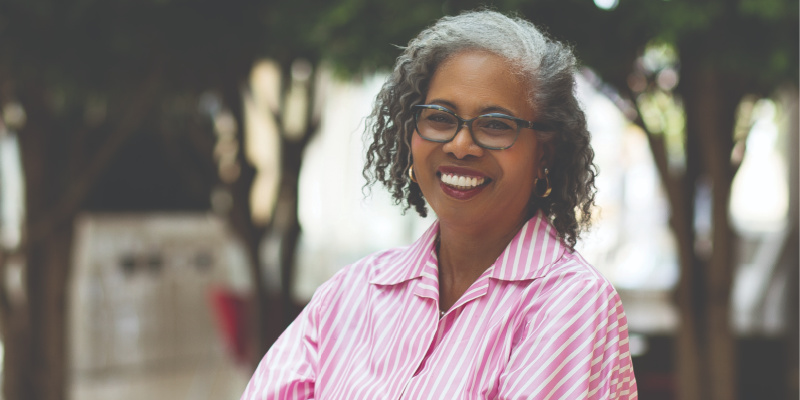By Shayna Mace | Photography By Marcus Miles
Gloria Ladson-Billings hadn’t really considered the teaching field when she was deciding on a career path at Morgan State University in Baltimore, Md. But luckily for countless students, she took that leap.
“I literally fell into teaching, with no deep desire to pursue it for the rest of my life,” muses Ladson-Billings. “But I think once I got into the classroom, I fell in love with teaching — it became exciting to me, and I was learning things.”
The Philadelphia native has taught in public schools in Philadelphia and California; authored the 1994 book “The Dreamkeepers: Successful Teachers of African American Children;” was the first tenured Black woman professor in the University of Wisconsin– Madison’s School of Education (and the Kellner Family Distinguished Chair in Urban Education); and has become an accomplished researcher, having studied culturally relevant teaching and effective instruction for Black students. Currently, she’s serving a four- year term as the president of the National Academy of Education.
In 1989, Ladson-Billings started studying Black student outcomes and why so many of these students weren’t experiencing academic success in the classroom. She puts it bluntly: “I kept [hearing] questions being asked that essentially were, ‘What is wrong with these Black students?’ ‘Why can’t they learn to read?’ Or, ‘Why can’t they do this?’ And the answers weren’t satisfying: ‘They’re just too poor.’ ‘They don’t speak the language correctly’ — you name it. It was always something wrong with the kids or their parents and then by extension, something wrong with their culture.”
She was awarded a Spencer Postdoctoral Fellowship in 1990 through the National Academy of Education to study culturally relevant education. “I began to ask the question, ‘What’s actually right with these kids, and what happens in a classroom where a teacher figures out how to get it right with them?’” Ladson-Billings discovered a few key factors in an effective teacher’s mindset that made all the difference.
“[One was] the [teacher’s] beliefs about the student’s ability and their … own efficacy as a teacher. It was really fundamental in their ability to do the work,” she explains. “The second thing is that [effective teachers] had … cultural competence. In other words, they understood that the students came in with language, customs, traditions and ways of being that reflected their home culture — and those teachers didn’t denigrate it.”
Today, Ladson-Billings draws upon her research and education background as chair of the Urban League of Greater Madison’s Board of Directors and on the Black Leadership Council, an ad hoc group that convenes Black organizations and meets with city and county leaders about fundamental socioeconomic issues that are affecting Madison’s Black population. In late July, the Council recommended 14 Black service providers for immediate funding that were awarded $350,000 from The Capital Times’ Evjue Foundation. “We want organizations and people to know, these are not new grievances. And so, there are some specific areas that we would hope the community would rally around, [including] economic justice, education, health and police reform,” she says.
“[This movement] isn’t one of those things that we can throw a few dollars at and try to get people to be quiet about it … this movement requires all of our attention.”
We’re lucky that Ladson-Billings is educating us all.




